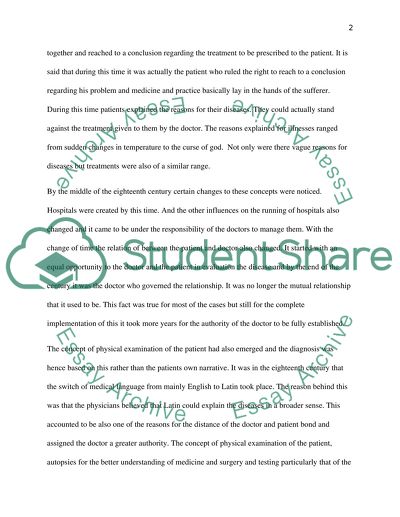Cite this document
(The Roles of Doctor in the 18th Century Assignment, n.d.)
The Roles of Doctor in the 18th Century Assignment. Retrieved from https://studentshare.org/health-sciences-medicine/1561544-how-did-the-physicians-and-the-literate-lay-people-in-the-18th-century-explain-disease-and-what-did-they-think-were-the-roles-of-doctor-the-individual-and-the-state-in-responding-to-and-preventing-it
The Roles of Doctor in the 18th Century Assignment. Retrieved from https://studentshare.org/health-sciences-medicine/1561544-how-did-the-physicians-and-the-literate-lay-people-in-the-18th-century-explain-disease-and-what-did-they-think-were-the-roles-of-doctor-the-individual-and-the-state-in-responding-to-and-preventing-it
(The Roles of Doctor in the 18th Century Assignment)
The Roles of Doctor in the 18th Century Assignment. https://studentshare.org/health-sciences-medicine/1561544-how-did-the-physicians-and-the-literate-lay-people-in-the-18th-century-explain-disease-and-what-did-they-think-were-the-roles-of-doctor-the-individual-and-the-state-in-responding-to-and-preventing-it.
The Roles of Doctor in the 18th Century Assignment. https://studentshare.org/health-sciences-medicine/1561544-how-did-the-physicians-and-the-literate-lay-people-in-the-18th-century-explain-disease-and-what-did-they-think-were-the-roles-of-doctor-the-individual-and-the-state-in-responding-to-and-preventing-it.
“The Roles of Doctor in the 18th Century Assignment”. https://studentshare.org/health-sciences-medicine/1561544-how-did-the-physicians-and-the-literate-lay-people-in-the-18th-century-explain-disease-and-what-did-they-think-were-the-roles-of-doctor-the-individual-and-the-state-in-responding-to-and-preventing-it.


